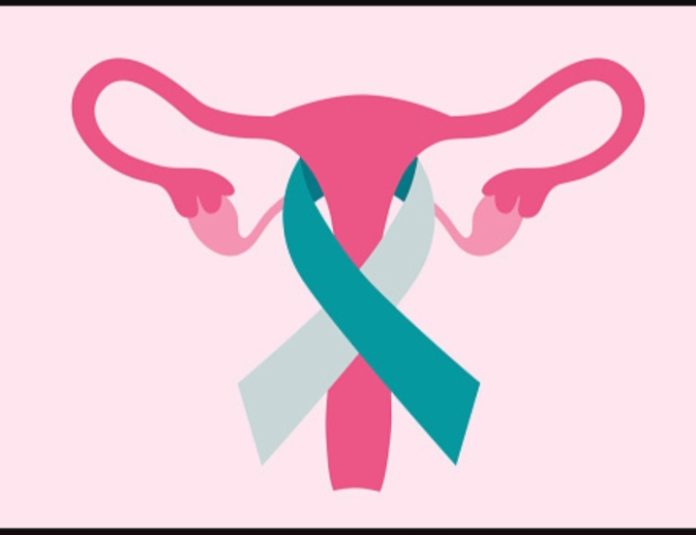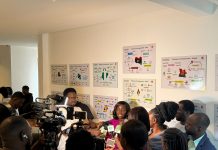The Executive Director of Vital Voices for Africa (VVA) has called on African governments and development partners to make cervical cancer prevention and control a priority, stating that there is a real opportunity to eliminate the disease.
Mr. Caleb Ayong made the appeal on 17 July 2024 during #HerReasonForBeing virtual space, a weekly event hosted by Being Africa.
According to him, a major factor that discourages women from going for screening is the embarrassing fact that they must expose their private parts to a medical practitioner, whom in most cases, is a man.
Medical experts warn that early stages of cervical cancer have no symptoms, and most cases of the disease are only detected when they are at an advanced stage, where treatment is no longer possible.
They therefore recommend regular screening to ensure early detection, when the condition can be completely treated.
In August 2020, the World Health Assembly adopted the Global Strategy for cervical cancer elimination, which aims to have countries reach and maintain an incidence rate of below 4 per 100 000 women by 2030.
According to the WHO, achieving that goal rests on three key pillars and their corresponding targets.
These targets are include getting 90% of girls fully vaccinated with the HPV vaccine by the age of 15; 70% of women screened using a high-performance test by the age of 35, and again by the age of 45; and 90% of women with pre-cancer treated and 90% of women with invasive cancer managed.
According to the VVA Executive Director, if HPV vaccination, and screening for cervical cancer are prioritised by governments and development partners if Africa, we can effectively meet the WHO global strategy and eliminate the disease in the continent. He stressed on the need to invest in making less intrusive screening methods more available and affordable so that more women can be comfortable getting screened.
There are currently two approved screening methods for cervical cancer which are the commonly used pap smear undertaken by a healthcare professional, and the more expensive but self-applied HPV DNA.
“It is possible to eliminate cervical cancer, but it is not a priority for African governments and perhaps, development partners. I call on governments, international donors and development partners to take it upon themselves to make the eradication of cervical cancer a priority. It can be done, but it is not a priority.
That is the problem.” said Caleb. “If we invest in making cervical cancer screening more user-friendly, and less intrusive, it could help get many more women screened across the continent.
Once we can get more women screened, we will be able to identify cervical cancer at an early stage, and the automatic result is that we will have fewer cases where the disease reaches an advanced, fatal stage.” he added.
Using the example of the Roll Back Malaria initiative where massive investment continues to be made to sensitise populations on malaria prevention and control, and to provide mosquito bed nets to every household, the VVA Executive Director called on partners and governments to undertake similar investments for cervical cancer eradication in Africa.
“It is expensive, but the good thing is that it only concerns women. Moreso, women of a certain age. So why not target the age group, invest in these women and get them protected once and for all?” he asked.
The WHO states that cervical cancer is the fourth most common cancer in women globally with around 660 000 new cases and around 350 000 deaths in 2022. The highest rates of cervical cancer incidence and mortality are in low- and middle-income countries.
This can change if we invest in ensuring that HPV vaccines are available for every girl of vaccination age, the self-applicable and more efficient HPV DNA test is provided at least twice to every sexually active female as recommended by the WHO, and strategies are put in place to ensure effective screening and vaccination.
Africa can and will eradicate cervical cancer if governments and development partners make it a priority.










































